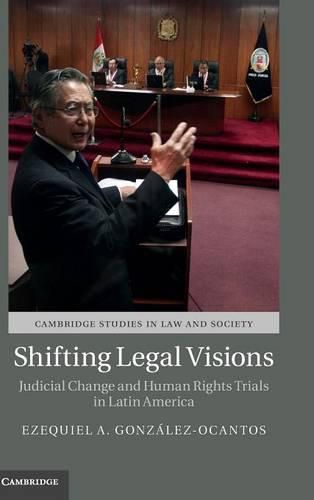Readings Newsletter
Become a Readings Member to make your shopping experience even easier.
Sign in or sign up for free!
You’re not far away from qualifying for FREE standard shipping within Australia
You’ve qualified for FREE standard shipping within Australia
The cart is loading…






What explains the success of criminal prosecutions against former Latin American officials accused of human rights violations? Why did some judiciaries evolve from unresponsive bureaucracies into protectors of victim rights? Using a theory of judicial action inspired by sociological institutionalism, this book argues that this was the result of deep transformations in the legal preferences of judges and prosecutors. Judicial actors discarded long-standing positivist legal criteria, historically protective of conservative interests, and embraced doctrines grounded in international human rights law, which made possible innovative readings of constitutions and criminal codes. Litigants were responsible for this shift in legal visions by activating informal mechanisms of ideational change and providing the skills necessary to deal with complex and unusual cases. Through an in-depth exploration of the interactions between judges, prosecutors and human rights lawyers in three countries, the book asks how changing ideas about the law and standards of adjudication condition the exercise of judicial power.
$9.00 standard shipping within Australia
FREE standard shipping within Australia for orders over $100.00
Express & International shipping calculated at checkout
What explains the success of criminal prosecutions against former Latin American officials accused of human rights violations? Why did some judiciaries evolve from unresponsive bureaucracies into protectors of victim rights? Using a theory of judicial action inspired by sociological institutionalism, this book argues that this was the result of deep transformations in the legal preferences of judges and prosecutors. Judicial actors discarded long-standing positivist legal criteria, historically protective of conservative interests, and embraced doctrines grounded in international human rights law, which made possible innovative readings of constitutions and criminal codes. Litigants were responsible for this shift in legal visions by activating informal mechanisms of ideational change and providing the skills necessary to deal with complex and unusual cases. Through an in-depth exploration of the interactions between judges, prosecutors and human rights lawyers in three countries, the book asks how changing ideas about the law and standards of adjudication condition the exercise of judicial power.